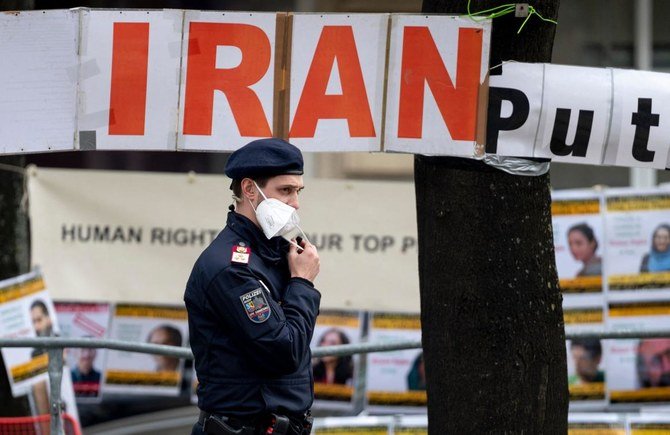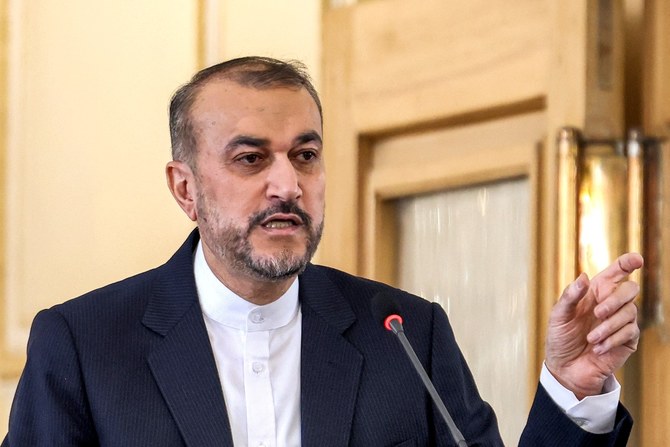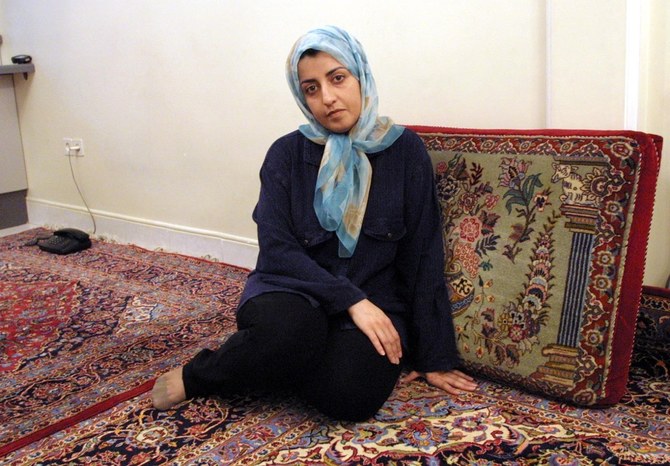VIENNA/JEDDAH: Diplomats are aiming for a revived nuclear deal with Iran to be signed in three weeks, they said, after new talks on Saturday in Vienna. “It’s too early to be excited, but we have reasons for cautious and growing optimism,” Russian Ambassador Mikhail Ulyanov said.
“There is no deadline, but participants aim at successful completion of the talks in approximately three weeks. Is it realistic?
We will see.” The Joint Comprehensive Plan of Action (JCPOA), the 2015 agreement to curb Iran’s nuclear program, collapsed in 2018 when the US withdrew and President Donald Trump reimposed sanctions that had been lifted under the deal. The remaining signatories of the JCPOA — Iran, China, Russia, France, Germany and the UK —have been engaged in negotiations in Vienna since early April to try to revive it.
The third round of talks started on Tuesday and, after several days of technical discussions between expert groups, delegations met again on Saturday. The US is not directly involved, but a US delegation in a nearby hotel is being kept informed.
Saturday’s talks were adjourned, and will resume on Friday, Iran’s Foreign Ministry said.
Iran’s delegation head and Deputy Foreign Minister Abbas Araghchi, speaking to state broadcaster IRIB, said the negotiations had “reached a maturity.”
“Considering the … previous decision regarding speeding up the talks process, this week’s talks continued quickly in bilateral format and the sides tried to minimize disagreements regarding the texts,” it said. “The sides agree that the work must continue with more speed and seriousness in the future round of talks.”
“We have started writing texts and this is where the work actually progresses rather slowly, since working on the text requires accuracy and considering that some issues are still disagreed on, the work goes on slowly.”
“Sanctions that are… sector-related ones such as sanctions on Iran’s energy sector, which includes oil and gas, or sanctions on the auto industry, banking and finance, insurance and ports; based on agreements made so far, all these sanctions must be lifted. And there is agreement on it, too,” he added.
The deal, which curbs Iran’s nuclear program in exchange for sanctions relief, has been on life support since then US president Donald Trump bolted in 2018.
The remaining partners to the 2015 accord have been engaged in negotiations since early April to try to revive it.
A diplomatic source from the E3 powers — Britain, France and Germany — said the talks had taken place in a “serious and focused atmosphere despite outside turbulences. We have yet to come to an understanding on the most critical points. Success is by no means guaranteed, but not impossible.”
Earlier, a European diplomat said that the American, European, Russian and Chinese delegations held a joint meeting on Saturday morning, but without Iranian representation as Tehran has refused to negotiate with the US directly.
US President Joe Biden has said he would lift sanctions if Iran returned to compliance with the JCPOA, but Iran insists that sanctions must be lifted first.
In addition, US allies in the Gulf are concerned that any revived agreement would not address Iran’s ballistic missile program and its regional meddling through proxy militias in Yemen, Iraq and elsewhere.
Saudi Arabia has suffered a series of attacks by missiles and armed drones, some launched by the Iran-backed Houthi militia in Yemen.
On Saturday, the Kingdom’s defense forces intercepted and destroyed a “hostile air target” aimed at Jeddah. The source of the attack was not disclosed.
AFP






















